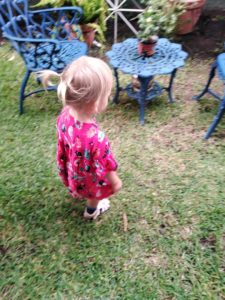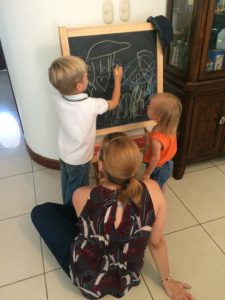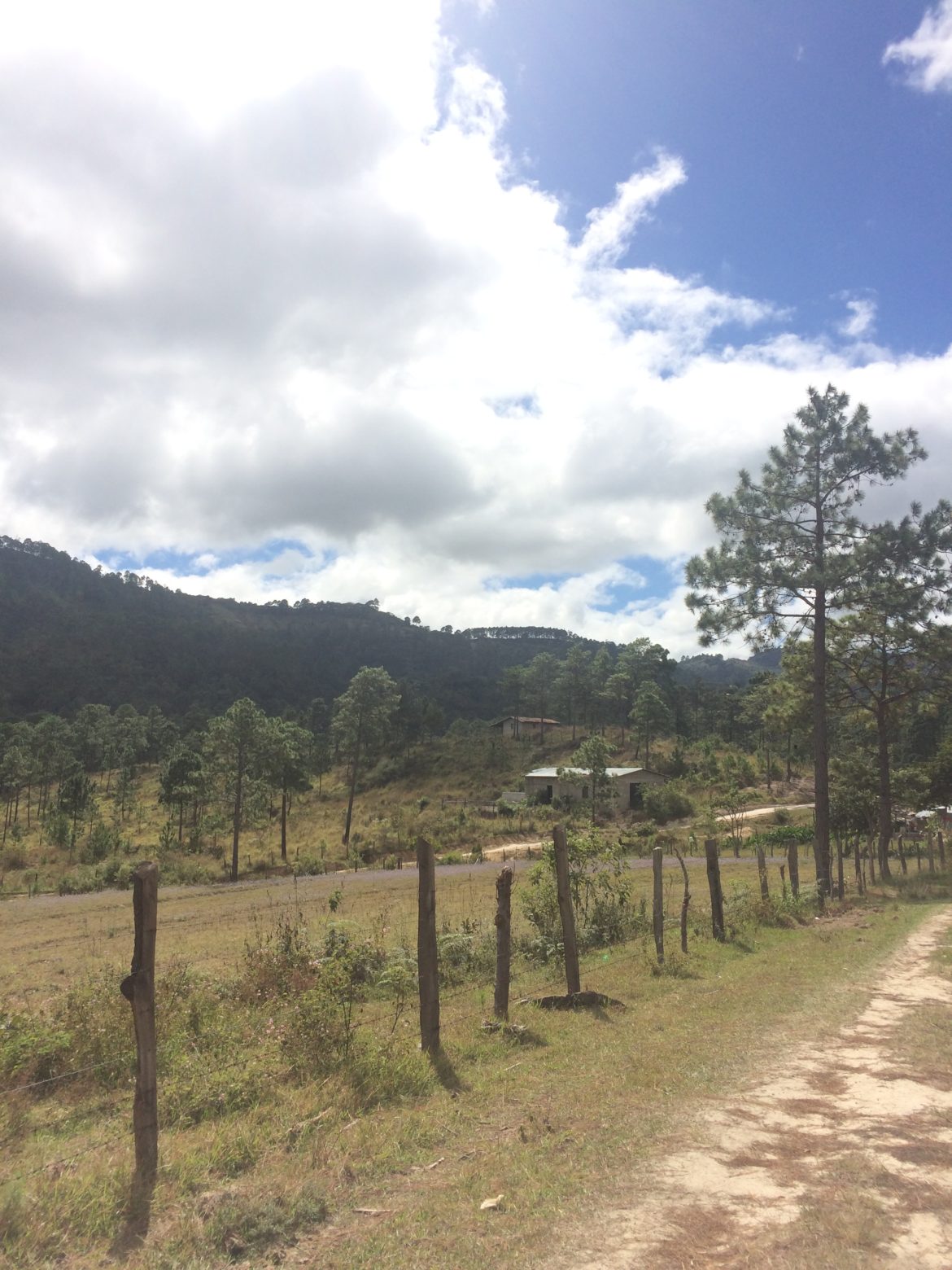Teaching ESL in Honduras
I am a primary school teacher by profession and fell into teaching English as a Second Language (ESL) by chance. My love of languages and the desire to share this world with children has guided my path towards becoming an ESL Specialist in Primary school in the Quebec French education system. Very quickly, my language teaching skills became a hot commodity in our predominantly Spanish speaking host country of Honduras. Here are some observations from my tutoring languages while overseas.
I got my first gig teaching French -as a third language- to a three and five-year-old brother-sister pair of children in our gated community. I was still in the cloud of sleepless nights and short attention span due to our second child being only 6 months old at the time. To these lessons I brought along simple games to learn numbers, colors and shapes in French. We also sang action songs and read simple stories. The books on tape were a great hit! Although these lessons didn’t last very long; I started to dust off the cobwebs covering the “teacher” part of my brain.

Next gig was at the Canadian Embassy here in Tegucigalpa. Believe it or not; I had to sign a contract with the “representative of the Queen in Canada” in order to get the contract! I taught ESL to an intermediate level colleague of my husbands at the consulate. She had a strong grasp of vocabulary but needed help with minor grammar details as well as conversation practice. However, those tricky English phrasal verbs such as “break up” or “come down with” gave us lots to talk about!
During that time, I also taught French as a Second Language (FSL) at the Embassy. I covered not only vocabulary, grammar rules and verbs, but also a sample of popular culture: Quebeçois, Canadian, French. I had prepared a lesson on a song called “Mon petit fais ton dodo” (based on a story by Felix Leclerc.) The music had a nice rhythm to it and simple vocabulary words; but the context was not as easy to translate: it describes the cold winter and snow. Even though my student was worldly and educated in her own first language, there was no way she could empathize fully with the concept of snowy cold winters. I personally believe that learning about how “the other” lives is also part of language learning.
When I am giving private lessons, I try to listen attentively and observe my student in order to prepare personalized lessons using the materials I have brought from home such as: newspapers, magazines, workbooks, games, and children’s story books. This leads to interesting discussions on cultural differences and similarities. For example, when playing a fruit and vegetable Bingo game my student did not recognize the picture for a kiwi or a blueberry (to be fair; I’ve rarely seen them for sale even in the upscale supermarket here.) Or, take for example, the concept of the changing seasons in a country where is it sunny and 25C nearly every day of the year! I have come to the conclusion that mass market ESL materials are not always culturally sensitive. Too often, teaching materials contain ingrained cultural assumptions that might be difficult for a Latino learner to comprehend.
In an attempt to overcome this obstacle, I turned the tables during a French lesson with an adult student. We read and discuss contemporary newspapers articles on issues facing Canada. This time, I asked her to describe the Honduran customs and traditions. We read examples of recipes from Canadian Living and then I asked her to write down typical recipes her grandmother would bake for Christmas in Honduras. We studied maps and giving directions after which I asked her to write a mini brochure for the downtown area of Tegucigalpa. Not only did this type of activity foster a sense of pride in their country but it also allows me an authentic glimpse into the Honduran way of life.

I also taught English conversation to a diplomats wife. The proud Spaniard already spoke five languages and intermediate English. Once, I forgot to prepare the lesson. So instead, we discussed the protests, that were unfurling -in real time- in parts of the city. (We were receiving security warnings and updates by email and What’s App as we spoke.) She is an experienced wife of a European diplomat. It is nice to share notes on our shared experiences as expats in our host country of Honduras. We often come to the same realizations with regards to the people and culture here. Often the 90-minute lesson flies by without either of us noticing!
More recently, I have been teaching ESL to the cleaning lady of an American acquaintance who works for the US Embassy here in Tegucigalpa. Julie has only very basic beginner English. She comes from a small rural village in a poor part of the country. She does not have much formal education to speak of. However, she is hard working and motivated to learn. I have observed that she has a great auditory and visual memory and picks up new words very easily. Personally, I think it is wonderful that she is being given the opportunity to acquire a new skill which is very useful when searching for work as a nanny or housekeeper for newly arrived diplomats and their families. My challenge is to meet her at her level and make the lesson meaningful and useful so that she can use the language in a real life situation. She brought her own exercise book to the first class: Ingles para Latinos, Level 1 by Baron’s Foreign Language Guides. This exercise book clearly outlines the differences and similarities between the two languages in simple terms. I also asked my student to tell me what vocabulary would be most useful for her. She replied the words relating to the context of the home and housekeeping. For homework, I asked her to survey all the objects in her kitchen and write down a list of the words she wanted to learn in English. In this way, we focus on the vocabulary that is useful for her. We did the same for bedroom, bathroom and other rooms of the house. We also try and read one new children books at the end of every class. The purpose of this activity is not only to acquire new vocabulary and practice good pronunciation but it also helps Julie familiarize herself with story time -in case she is hired to work as a nanny.

All this brings me back to why I decided to become a teacher in the first place.
I vividly remember teaching ESL in a rural village in Mexico back in 2001.
At the time, I was 19 years old. Upon completing CEGEP (equivalent of high school in Quebec) I took a year sabbatical to volunteer with a community of nuns, Las Marcelinas, in Querétaro, Mexico. We travelled by bus, horse and foot to a very rural and impoverished village in the central part of the country. As my high school degree was much higher than the average level of schooling for the majority of the people in the village; I was immediately asked to help a small group of women learn how to read a write. To put this into context, this village was populated only by women and young children since the vast majority of men had left to work illegally in the United States (the migration caravane is not a new phenomenon.) In the time before Internet and the ubiquitous cell phone, these the middle-aged women had signed up for my literacy class -simply in order to be able to read the letters their loved ones regularly sent home. They dearly wished to be able to reply by their own pen without having to pay for a scribe to put their words on paper.
I can remember the first lesson like it was yesterday: A student arrived over an hour late and then barely apologized for her tardiness and the disruption it caused. I became very upset at her ungrateful attitude towards my hard work and preparation; because I was an unpaid volunteer student offering to teach them basic literacy and numeracy skills. After some prying and prodding it came to light that she had been held back while assisting her sheep give birth. Obviously, these baby lambs were an important source of income for her family and even the community at large. This reality quickly brought me back to earth. Sheep give birth. Literacy comes second. One must have their priorities straight.
I wonder what it must feel like for recent immigrants, young and old, who arrive to Canada and continue their education in our system. There are so many things we take for granted as a society. The image of the cultural iceberg again comes to mind. A good grasp of the local language and the someone to help navigate the unwritten cultural rules can make all the difference when it comes to adaptation and assimilation.
In conclusion, there are so many benefits to bilingualism. Studies show that speaking more than one language in the household positively affects their cognitive development, their social-emotional development, learning, and long-term success. It also, fosters adaptability and empathy towards others. Many people in Honduras pride themselves on their English and are eager to send their children to private bilingual schools. I agree that English will help later on in terms of employment, but the danger is that this might take way from pride of their mother tongue. Let’s hope both can grow side by side.


Succinctly stated . Bravo Amy ! We read we write we learn !
Hey there ,I am really grateful to the owner of this site who has shared this fantastic article at at this time. grazie
Love to spend time near Sea !
I learn something new and challenging on blogs I stumbleupon everyday.